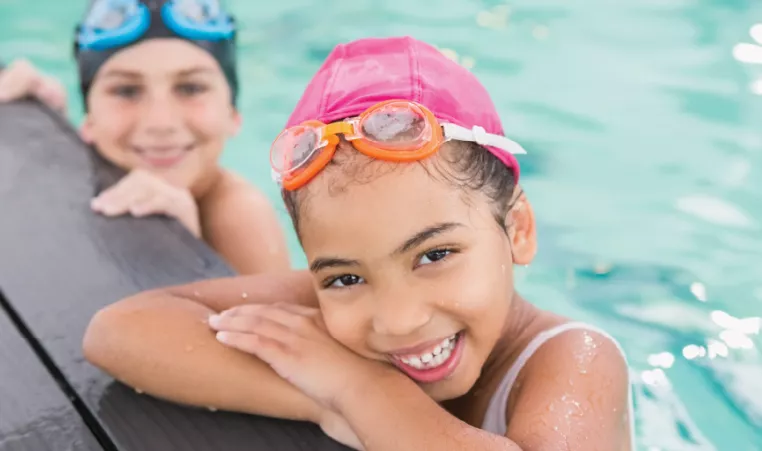Tips to Prevent Swimmer’s Ear from Children’s Hospital of Philadelphia

Nearly every water-logged kid will have several summer days ruined by this seasonal scourge: swimmer’s ear.
Also called otitis externa, swimmer’s ear is an infection of the outer ear canal, which runs from the eardrum to the outer ear. Symptoms may include redness, pain and itching around the outer ear; a plugged-up feeling in the ear; and sometimes drainage.
These uncomfortable symptoms usually appear when water remains in your child’s ear after swimming; the moist environment spurs bacterial growth. It doesn’t matter if it’s a long day at the pool or a quick dip in the ocean — anytime there’s moisture in the ear canal, your child is at risk for this infection that can last nearly a week.
While swimmer’s ear can typically be cleared up with antibiotic ear drops, there are also ways you can avoid it. Here are some of the best ways to prevent swimmer’s ear, according to Jennifer P. Yakupcin, MSN, RN, CPNP-AC/PC, CORLN, a nurse practitioner at Children’s Hospital of Philadelphia (CHOP).
- Teach your child to use a towel to dry his ears every time he gets out of the pool. This needs to become a habit — lots of kids dry off their face and body, but forget their ears. Show your child how to dry their ears first, when the towel is dry, and then continue with the rest of their body. It will also help if your child tilts their head to each side while gently pulling the ear lobe down. This opens the ear canal so water can drain out.
- Encourage your child to wear ear plugs while swimming. If your child is constantly getting swimmer’s ear, ear plugs can block excess water from entering the ear and decrease the risk of infection.
- Limit outdoor use of large headphones. The hot, humid environment large headphones create in the ear canal can promote bacterial growth. Earbuds pose less of a risk, as long as kids aren’t sharing them.
- Keep your child’s ears clean — but not too clean! Don’t aggressively clean your child’s ears with cotton swabs. This can cause tiny tears in the thin layer of skin lining your child’s ear canal, creating an entry point for bacteria. On the other hand, excessive ear wax can sometimes cause swimmer’s ear. It’s important to keep your child’s ears (appropriately) clean.
- Avoid excessive showering. Kids often take two showers a day in the summer, giving water more opportunities to build up in the ear canal.
Following these tips will help keep your little swimmer — and their ears — healthy and happy this summer!
This article was contributed by Children’s Hospital of Philadelphia, King of Prussia, a partner of the YMCA of Greater Brandywine.